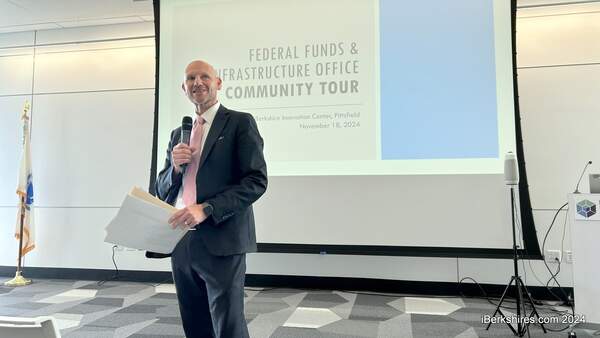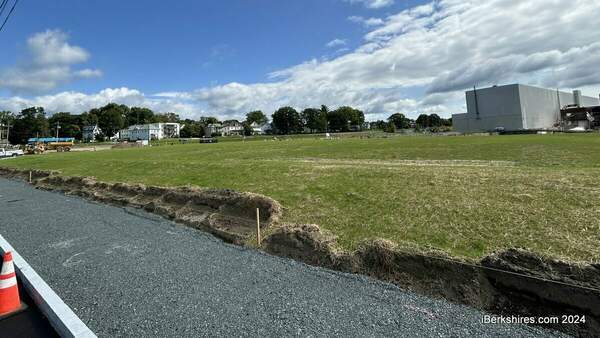Pittsfield Councilors See Positives in Citywide Water Meters
PITTSFIELD, Mass. — Councilors are pushing for citywide water meters with considerations for cost savings and climate change.
On Tuesday, the Ordinances and Rules subcommittee agreed that requiring water meters on all new residential construction is the way to go but the language needs to be fleshed out. A petition from Ward 1 Councilor Kenneth Warren and Ward 5 Councilor Patrick Kavey requesting to determine if the meters will be required was tabled in order to gather further feedback.
"I think we're all in agreement that we would like to see this get done," Kavey said.
"We need to have more discussion with (Commissioner of Public Services and Utilities Ricardo Morales) over it and come up with some language, work with (City Solicitor Stephen Pagnotta,) and then discuss this more at our next meeting."
New commercial construction already requires water meters but after water rates rose by 12 percent and sewer rates rose by 25 percent earlier this year, talk of citywide water meters intensified.
There were some questions about the added cost for residents, which is about $1,000 or more to have one installed, and enforcement.
Warren said the cost is negligible and that the city needs to stop trying to find reasons why it can't be done. During the hearing for the water and sewer rates, he held up a sign advocating for the infrastructure that showed how it could benefit a senior living alone.
He doesn't mind taking the time to send it to Pagnotta to ensure that it is enforceable.
"If you're building a $250,000 house, $1,000 isn't going to matter plus it's saving the homeowner money down the road," he said.
"But it's not just saving money. I'm going to be dead soon but you guys are the ones who have to carry on when we're dealing with climate change and all those issues to manage our resources and that includes water at some point. You need to conserve water. You're going to need to possibly mandatorily conserve water so there needs to be meters."
Kavey wants to make sure that the council looks at every single aspect of the proposal, clarifying that he is not making excuses against it.
"It's just, $1,000 to some people is a lot of money and to other people, it's not that much," he said. "You make a good point though with building a new home, you're spending a significant amount of money so $1,000 is palpable in that case but it's still something that I wanted us to be aware of and be discussing."
Building Commissioner Jeffrey Clemons said it is a good idea but wondered what happens if a person objects to installing a water meter.
He feels that it should probably be under the water department's purview.
"So the question becomes, do I not issue a permit because somebody says, 'No, I'm not putting a water meter in?" he asked. "I can't do that unless it comes from the building code or the zoning ordinance. I have to be able to cite something. I also have to be able to cite their appeal process."
He added that with all building permits, the department sends notices to different departments that may have a stake such as conservation and the health department. The building inspectors don't have the authority to deny a permit for that reason but it could be sent to the water department or the department of public services, which can enforce their laws and ordinances.
Clemons also pointed to the shortage of plumbers and supply chain issues with the meters.
To that, Warren said there will always be supply issues but if there is a plumber available to put a toilet in a new house there will be a plumber available to install a water meter.
Ward 7 Councilor Anthony Maffuccio is in support of best preparing future generations with water meters but said enforcement and supply chain issues will be a challenge.
"Supply and demand is a big issue," he said.
Kavey said they would be able to work through it together and in the event that there were supply chain issues or other issues, there could be a buffer written into the ordinance or it just be adjusted if need be.
Tags: water bills,















